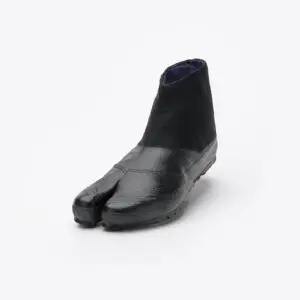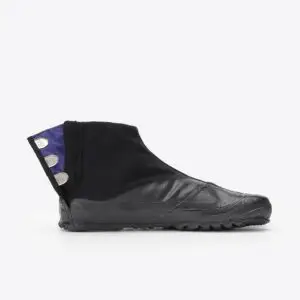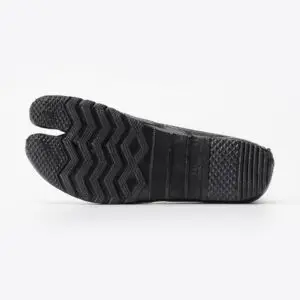Jikatabi or Ninja Shoes, are traditional Japanese footwear designed for practicality and functionality. These shoes feature a unique split-toe design, which separates the big toe from the rest of the toes.



In fact, their most distinctive feature is the unique split-toe design, which separates the big toe from the rest of the toes. As a result, this design enhances balance and grip, making them ideal for activities that require precision and stability. Unlike tabi socks, typically worn indoors, Jikatabi is boot-like and often extends above the ankle. Additionally, they are secure with small metal fasteners called “kohaze” on the side, allowing for a snug and adjustable fit.
The upper part of Jikatabi is usually made from sturdy and breathable materials such as cotton or canvas, while the sole is crafted from flexible rubber. Therefore, this combination provides excellent traction, durability, and a lightweight feel. The thin rubber sole enhances the wearer’s sense of touch with the ground, giving a barefoot-like experience that improves mobility and agility.
Historically, Jikatabi were worn as workwear by farmers, construction workers, and gardeners. Moreover, martial artists favor them for their flexibility. Jikatabi are also worn during Japanese festivals as part of traditional attire. In recent years, they have gained popularity in modern fashion and are now appreciated by niche markets, including outdoor enthusiasts, cosplayers, and eco-conscious consumers.
Ultimately, Jikatabi represents a blend of traditional Japanese craftsmanship and innovative design, maintaining their relevance across both cultural and practical domains.

Above are the ones sold on Amazon that are made in Japan.
Note: These shoes don’t have steel plates to protect your toes like Western construction boots do.
Did this post about Jikatabi help you unbox Japan?
Check out more of our blog entries to learn about Japan’s unique businesses and culture here!

